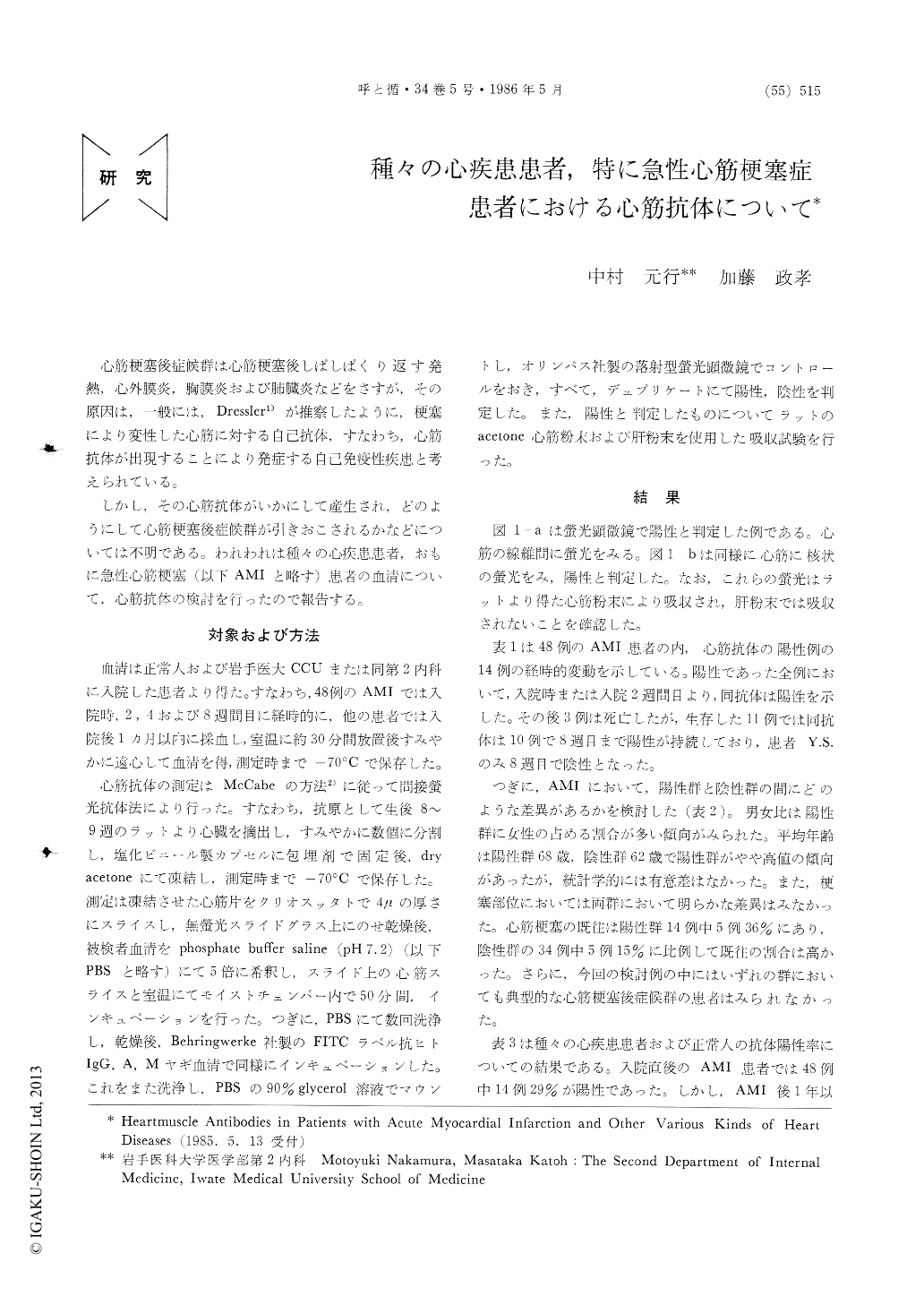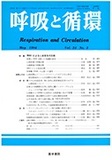Japanese
English
- 有料閲覧
- Abstract 文献概要
- 1ページ目 Look Inside
心筋梗塞後症候群は心筋梗塞後しばしばくり返す発熱,心外膜炎,胸膜炎および肺臓炎などをさすが,その原因は,一般には,Dressler1)が推察したように,梗塞により変性した心筋に対する自己抗体,すなわち,心筋抗体が出現することにより発症する自己免疫性疾患と考えられている。
しかし,その心筋抗体がいかにして産生され,どのようにして心筋梗塞後症候群が引きおこされるかなどについては不明である。われわれは種々の心疾患患者,おもに急性心筋梗塞(以下AMIと略す)患者の血清について,心筋抗体の検討を行ったので報告する。
The paper presents the heartmuscle antibodies which might play an important role of autoimmune etiology in postmyocardial infarction (Dressler's) syndrome. The antibodies were determined by the method of McCabe using indirect immunofluorescence technique, and sera were obtained from the patients with various kinds of heart diseases, and 48 consecutive patients with acute myocardial infarction (AMI).
The antibodies were found in 2/10 of the patients with angina pectoris (20%) and 14/48 of those with AMI (29%). The group of AMI patients with and without heartmuscle antibodies were comparable with respectto sex, age, site of infarction, creatine phosphokinase, pulmonary capillary wedge pressure, left ventricular ejection fraction (EF) and left ventricular end-diastolic pressure (LVEDP). The heartmuscle antibodies in 14 patients appeared on admission, and posi tive result continued at least for 8 weeks. EF was significantly decreased in the group with antibodies (33±5%),compared with those without antibodies (47±3%) (p< 0.001), and LVEDP was increased in the patients with heartmuscle antibodies (32.2±4.3 mmHg) rather than those without antibodies (17.5±2.6 mmHg) (p<0.05).
The results suggest left ventricular function in patients with AMI was impaired in the group with heartmuscle antibodies compared to those without antibodies.

Copyright © 1986, Igaku-Shoin Ltd. All rights reserved.


